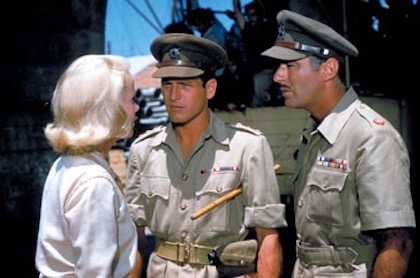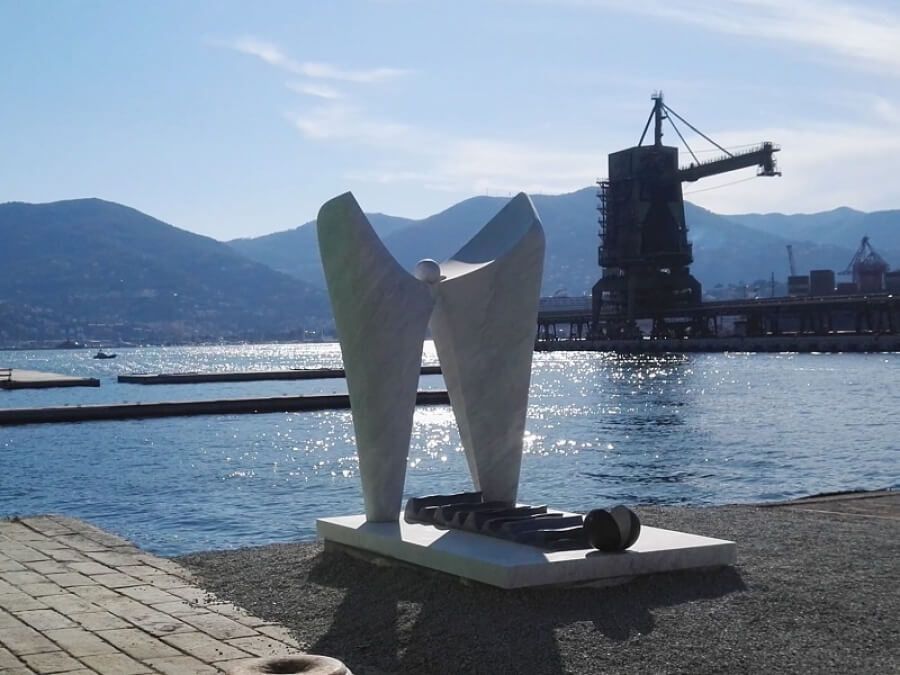Did you know that La Spezia is known as Zion Gate in Israel? After the end of the Second World War, the Gulf Of Poets played a crucial role: between 1946 and 1948, La Spezia became, in fact, the reference point for Jewish refugees who had escaped from the Nazi concentration camps and were eager to reach the “promised land”.
Today, more than ever, the theme of international peace is topical: intercultural reflections and civil debates between societies, ideas and religions help tell the story of a destination.
Many ships sailed eastwards from La Spezia to the point that even today, on Israeli maps, the city is indicated with the name of “Sha’ar Zion“, the Zion Gate. One of these boats, the largest and most famous, was called Exodus. History takes us back to 1946.
In early May of that year, the inhabitants of La Spezia noticed numerous unknown people gathering in the area of the Pirelli Pier. An old motorsailer called Fede (faith) was docked here after undergoing work in the Bargiacchi shipyard in Portovenere. Initially concerned – with their city exhausted by war and destroyed by bombings – the inhabitants of La Spezia soon discovered that they were at the epicenter of an international case over the issue of Jewish immigration. It became known as the La Spezia Affair.

There was also a second motorsailer in La Spezia, the Fenice (phoenix), and both were ready to transport 1,014 refugees. But Great Britain regulated the controlled flow of survivors into Palestine and sent some of its ships to block the exit of the two boats from the Port of La Spezia. The inhabitants of La Spezia showed strong solidarity towards the exasperated and hopeful refugees, bringing them food and comfort.
“It was precisely the support of the locals, the resistance of the refugees, the intervention of journalists and the visit on board of Harold Lasky, chairman of the British Labour Party, which forced the London authorities to lift the blockade on the two boats which set sail from La Spezia at 10 am on 8 May 1946,” wrote journalist Marco Ferrari.
Exactly one year later, in May 1947, the Trade Winds ship (set up in Portugal and renamed Tikva) embarked 1,414 refugees in Portovenere, where the President Warfield ship (coming from Marseilles) was also refitted to transport 4,515 refugees. This last ship, which was renamed Exodus, became the protagonist of the most remarkable undertaking of Jewish emigration: from La Spezia, it reached the coasts of Palestine, where it was attacked by the British, who prevented the refugees from landing. The events initiated the birth of the State of Israel.

On 25 April 2006, the President of the Italian Republic – Carlo Azeglio Ciampi – awarded the city with the gold medal for civil merit for the help given by the population of La Spezia to Jewish refugees. Every year, the town hosts the Exodus award dedicated to interculturalism.

We thank Gino Ragnetti for his help and expertise in writing this article.
Sources:
Premio Exodus
Do In Italy
Cover photo by Matthieu Rochette (@matthieur68)
Discover more from Discover Portovenere Blog
Subscribe to get the latest posts sent to your email.